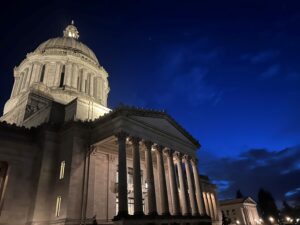 The first light of the day greets the Capitol Building for more legislative activity
The first light of the day greets the Capitol Building for more legislative activity
(Photo Credit: Erica Hallock)
Trivia!
The “Lost” Capitol. When it was still a Territory, Washington had a different Capitol Building. Where was the original Capitol Building located?
This Week’s Highlights
Action on three of the Initiatives to the Legislature. This week, joint legislative committees held public hearings on three of the six Initiatives to the Legislature:
While each of the initiatives were heard before joint legislative committees (for example, the Senate Early Learning and K-12 Committee and the House Education Committee held a joint hearing on I-2081), each of the Senate and House Committees will meet independently Friday, March 1 in Executive Sessions to take a vote on the initiatives. Using the example of I-2081, the Senate Early Learning and K-12 Committee will meet in its own Executive Session to consider I-2081 and the House Education Committee will meet separately in its Executive Session to also consider I-2081.
If these initiatives are approved by their respective committees, they will move to the Senate and House Floors for debates and votes there. Those initiatives passed by both bodies will NOT appear on the November general election ballot.
Initiatives to the Legislature are not subject to legislative cutoff deadlines, nor do they require gubernatorial approval. For more information, the Washington State Standard has been covering the hearings on I-2113 (vehicular pursuits), I-2081 (parental rights) and I-2111 (income tax).
Another day, another committee cutoff. In what now feels like weeks ago, Monday, Feb. 26 represented the final committee cutoff – the deadline for bills to pass out of the opposite chamber’s fiscal committee.
For many advocates (including this writer), it made for quite a tense weekend of waiting to see if your beloved bill would make the Monday Executive Session schedule AND receive a vote. The bill that received the most attention was in the Senate Ways and Means Committee where an effort to pass rent stabilization failed to garner sufficient support for passage. Again, our friends at the Washington State Standard captured the issue – and the political implications – in a thorough manner.
“It’s 5 o’clock somewhere.” Friday, March 1 at 5 p.m. represents the Opposite House Cutoff. This means that all bills (except those deemed Necessary to Implement the Budget) must be passed by the opposite body.
Maybe it is because so many bills did not make it through the filter this year, but it does feel like the Legislature has a more manageable list of bills to tackle before 5 p.m. on Friday. We again get to play the game of “What is the 5 p.m. bill?” (We really need more entertaining hobbies in this work). Check out the February 16 edition of Notes from Olympia for a description of the 5 p.m. bill concept.
The demise of the rent stabilization bill, as noted above, takes one of the likely options off the table for the Senate’s 5 p.m. bill. In the House, talk is that the “Keep Our Care Act” (ESB 5241) could be their 5 p.m. bill. Supporters argue the Keep Our Care Act will ensure that hospital mergers do not limit access to critical health care.
Check back next week for the riveting conclusion to the question gripping the state of Washington – “What was the 5 p.m. bill?” In the meantime, visit our state policy resources page for the latest status on bills.
What’s on deck for the final week?
What can we expect? Other than the unexpected, of course!
Finalization and approval of budgets. A major – if not the primary – “to do” in the final week of the legislative session is the release and ultimate approval of the compromise Operating, Capital and Transportation budgets. Typically, this is one of the final acts before adjournment. If you are sitting in the Senate and House galleries watching the Floor debate right now, it is quite common to see budget writers popping on and off the Floor as they continue to iron out budget details. They are working to craft a balanced budget that also garners sufficient support for passage. As part of this process, Senate and House budget negotiators are identifying areas of variance between their two budget approaches and working toward compromise. Again, always with an eye toward a balanced budget that will pass both chambers.
Once the compromise budgets are released, Start Early Washington will update its budget chart with all the details on our state policy resources page.
“Get it right back where we started from.” Just like in the classic Maxine Nightingale song, sometimes you gotta “get it right back where we started from.” (Google the song if you don’t know it – it’s a classic toe tapper!). I’m working hard to spice up the rather dry mechanics of the legislative process, folks!
If a bill has not been amended in the opposite chamber, it can go straight to the Governor for action following passage and signature by the respective leaders. Conversely, when a bill has been amended in the opposite chamber, it must go back to where it started from (I did have a point with the song reference!) so the originating body can give their A-OK on the amendments made in the opposite chamber. This process is called “concurrence.” Much of the last week of the legislative session will focus on the Senate and House concurring on the opposite chamber’s amendments. There are occasions when there is disagreement over the direction the bill has taken in the opposite chamber, and there are steps in place to address when this occurs.
“So long, farewell, auf Wiedersehen, adieu.” This classic song from “The Sound of Music” feels very appropriate right now. At the end of every two-year legislative session, it is customary for lawmakers to announce retirements. Sometimes legislators are retiring from elected office altogether while others might be seeking an office different from the State Legislature.
We are starting to see the retirement announcements roll out, including from freshman House Republican Spencer Hutchins from the 26th legislative district in Kitsap County. Last week, Representative Hutchins announced he would not seek reelection to the Legislature due to the impact holding office has had on his family and business. On Wednesday, former House Minority Leader J.T. Wilcox, who has served the 2nd legislative district representing parts of Pierce and Thurston counties since 2011, shared his plans to retire at the conclusion of his term.
During the last week of session, we will see time set aside in the Senate and House for lawmakers to honor and thank their departing colleagues for their contributions.
SINE DIE is March 7 – the end is near! In Latin, “Sine Die” literally means “without day.” What that means in the legislative context is there is no day designated on which the Legislature will resume its activities (until the next year).
During the legislative session, when the Senate and House officially adjourn each day, they announce their return. So, when the Senate adjourned last night, they announced the Senate was adjourned until 9 a.m. Friday, March 1, the 54th legislative day. Sine Die is the one day they do not announce a return date.
What Sine Die means for those involved in the legislative process either as a legislator, staff, advocates or other interested parties, is we can take a second to breathe and catch up on some much-needed sleep.
It might be Sine Die, but the work is not quite done. As we near the end of session, everyone is eager to get their bills approved by both chambers (relatively intact), signed by the House Speaker and Senate President and to the desk of the Governor for his hopeful signature. Of course, bills are not considered “law” if they don’t get the Governor’s “John Hancock.”
The timing of when the Governor must act on bills that reach his desk is connected to the timing of when they are delivered to his desk. In short, there are two main rules:
- Any bill that is delivered to the Governor’s office when there are MORE THAN five days before the legislative session ends, becomes a “5-day bill”—that is, the Governor must act upon it within five days.
- Any bill that is delivered to the Governor’s office when there are FEWER than five days remaining in the legislative session, becomes a “20-day bill”—the Governor must act upon it within 20 days.
Like with any rule, there are exceptions! One exception involves how the days are counted. Per the Governor’s office website, these time periods are counted using calendar days, not business days. Even Saturdays and state holidays are included in the count! But Sundays are not included.
Much like with babies, the key detail in this process is the delivery date, meaning the day the bill shows up at the Governor’s office. For example, a bill may have passed Feb. 29, but due to need for leadership signatures, it may not be delivered to the Governor’s office until March 2, so it becomes a 20-day bill because of when it was delivered.
Today, March 1, is the cutoff for 5-day bills. So, if you’re eagerly awaiting Governor Inslee’s signature, here’s to hoping your bill(s) was delivered to his office today!
How to track the status of bill signings? Governor Inslee’s website contains a bill action section that will include updates on scheduled bill actions and note actions taken to date. Most of the bill activity will occur in the Governor’s conference room in the Legislative Building but sometimes a bill signing will be scheduled at a relevant location off-campus, such as a school for an education-related bill.
If you’re *really* excited about a bill getting signed and want to see its signature ceremony, the best way to watch is on TVW. Bill sponsors are afforded a few invitations, but unfortunately bill signings have been closed to the public since the pandemic.
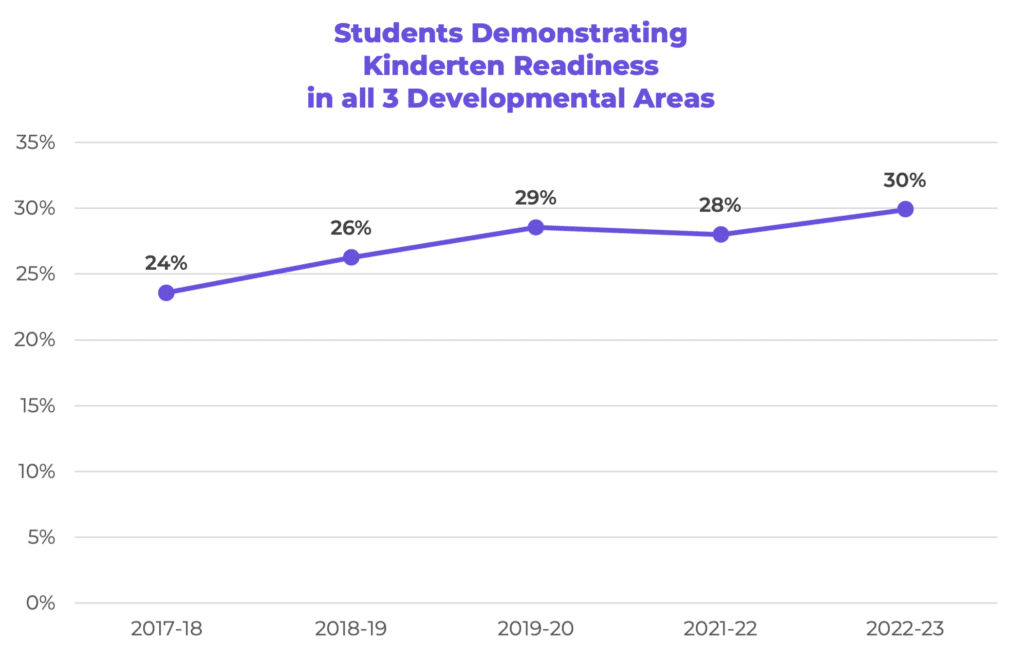
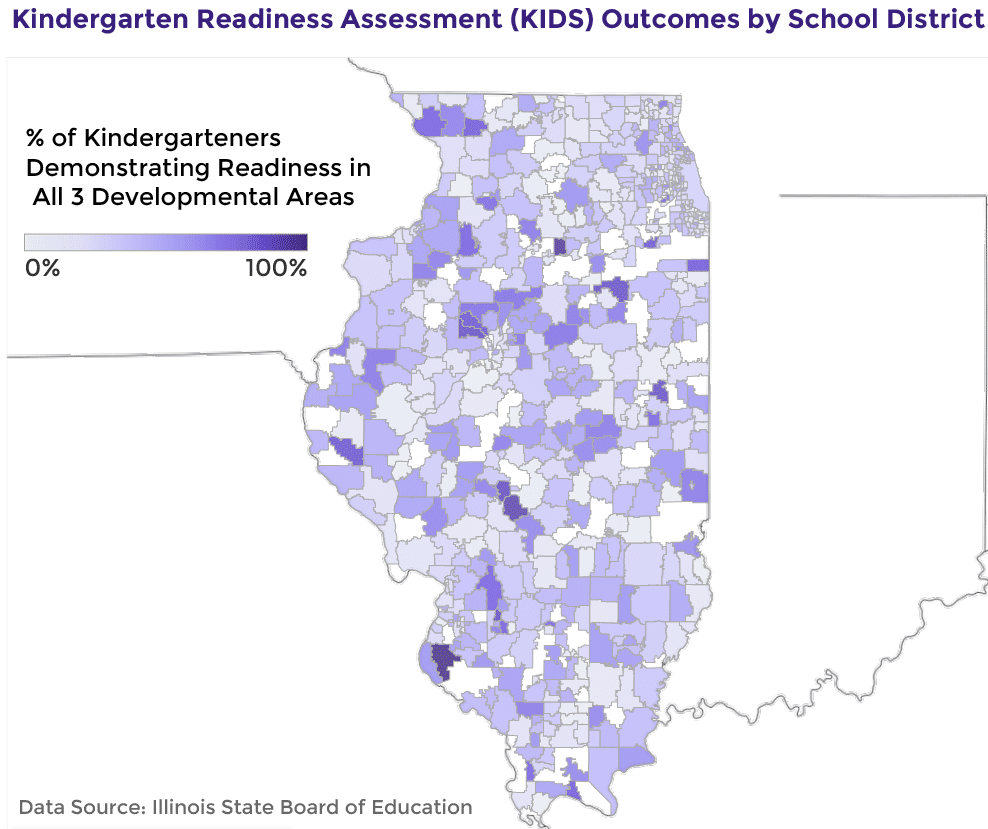
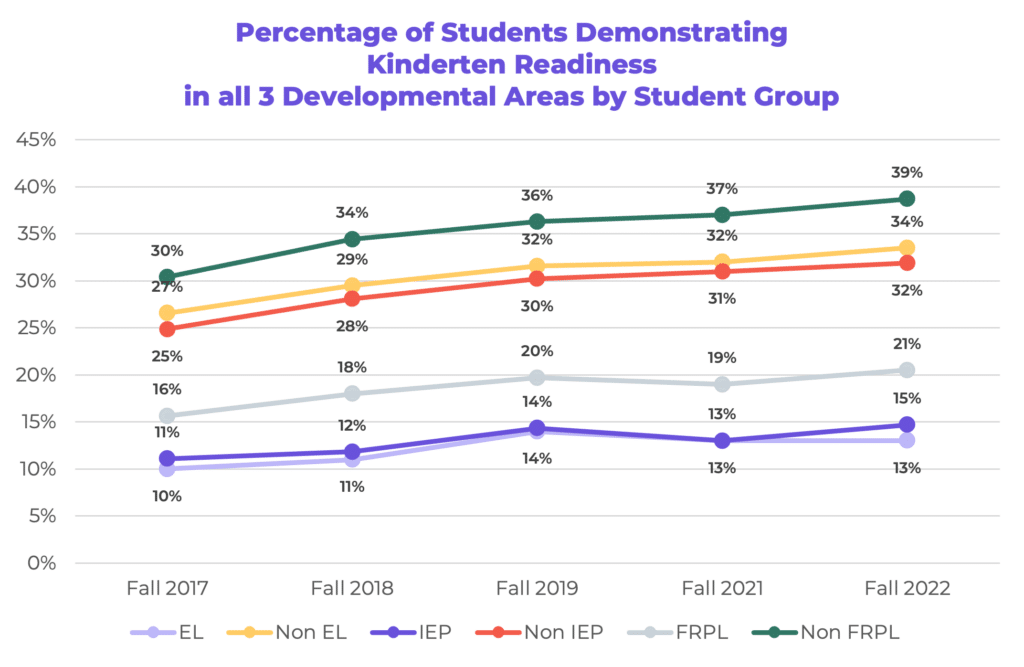

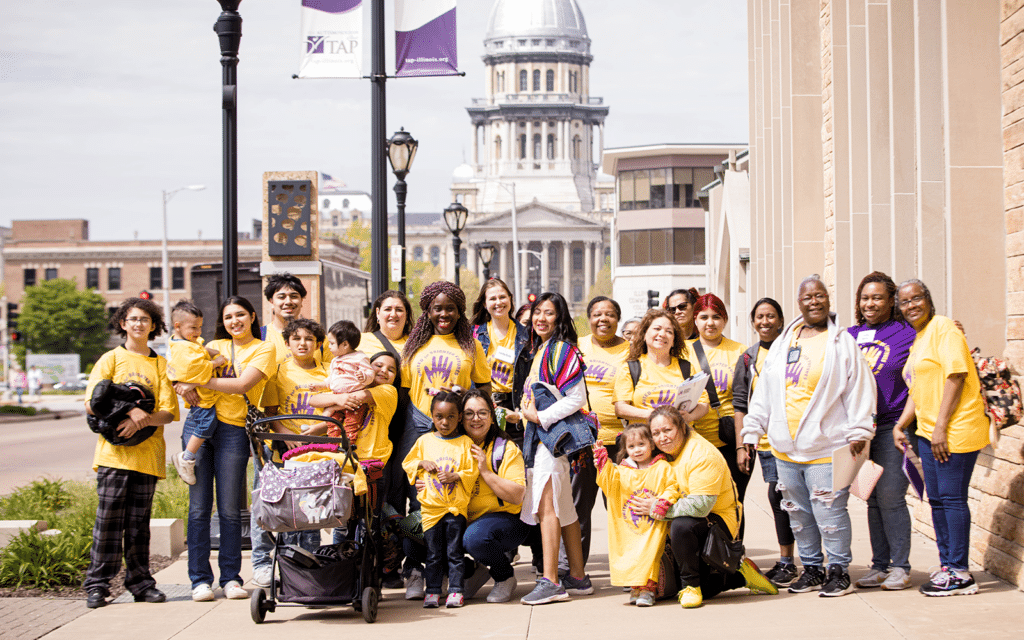
 An early morning photo taken from the spot of Washington’s original Territorial Capitol
An early morning photo taken from the spot of Washington’s original Territorial Capitol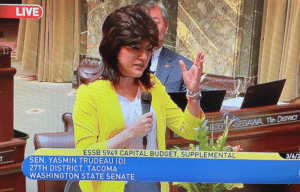 Prior to voting in favor of the Capital budget, many Senators donned mullets in honor of Senator Mark Mullet, who oversaw the crafting of the Capital budget.
Prior to voting in favor of the Capital budget, many Senators donned mullets in honor of Senator Mark Mullet, who oversaw the crafting of the Capital budget.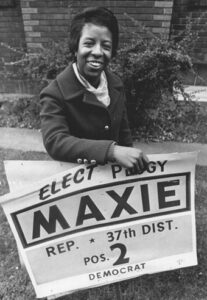 Peggy Maxie and one of her campaign posters
Peggy Maxie and one of her campaign posters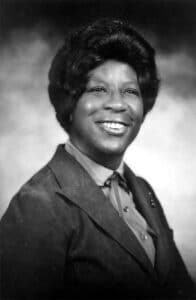 Peggy Maxie
Peggy Maxie What could have been … A sample Smokey the Bear license plate
What could have been … A sample Smokey the Bear license plate The first light of the day greets the Capitol Building for more legislative activity
The first light of the day greets the Capitol Building for more legislative activity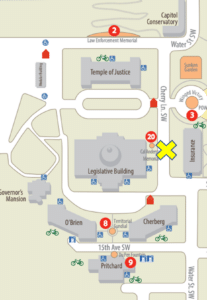 “X” Marks the Spot of the Original Capitol Building for the Washington Territory
“X” Marks the Spot of the Original Capitol Building for the Washington Territory The original Capitol Building in the snow (1911)
The original Capitol Building in the snow (1911) The Legislative Building awaits another busy week
The Legislative Building awaits another busy week Potato Day!
Potato Day!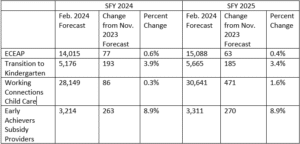

 One of the sixth grade lobbyist posters in support of the Pacific razor clam
One of the sixth grade lobbyist posters in support of the Pacific razor clam An unexpectedly snowy morning at the Capitol
An unexpectedly snowy morning at the Capitol Ranald MacDonald’s grave on-site at the park
Ranald MacDonald’s grave on-site at the park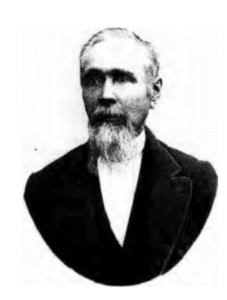 Ranald MacDonald, 1824-1984
Ranald MacDonald, 1824-1984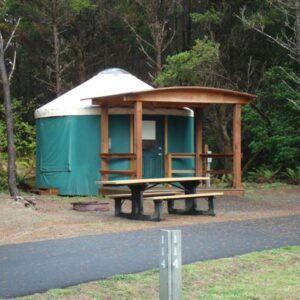 A yurt at Grayland Beach State Park
A yurt at Grayland Beach State Park